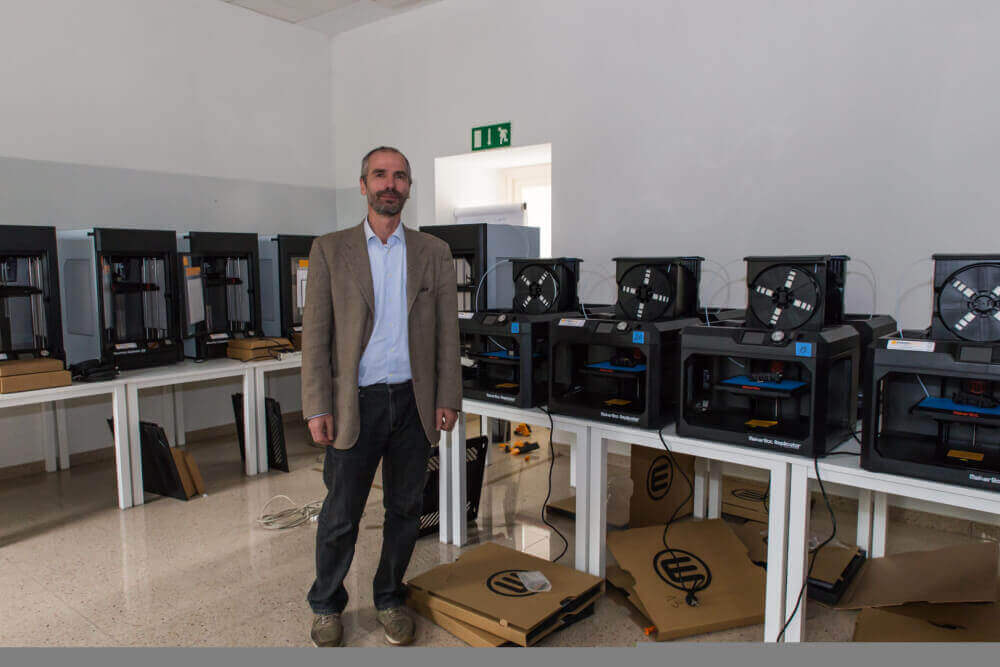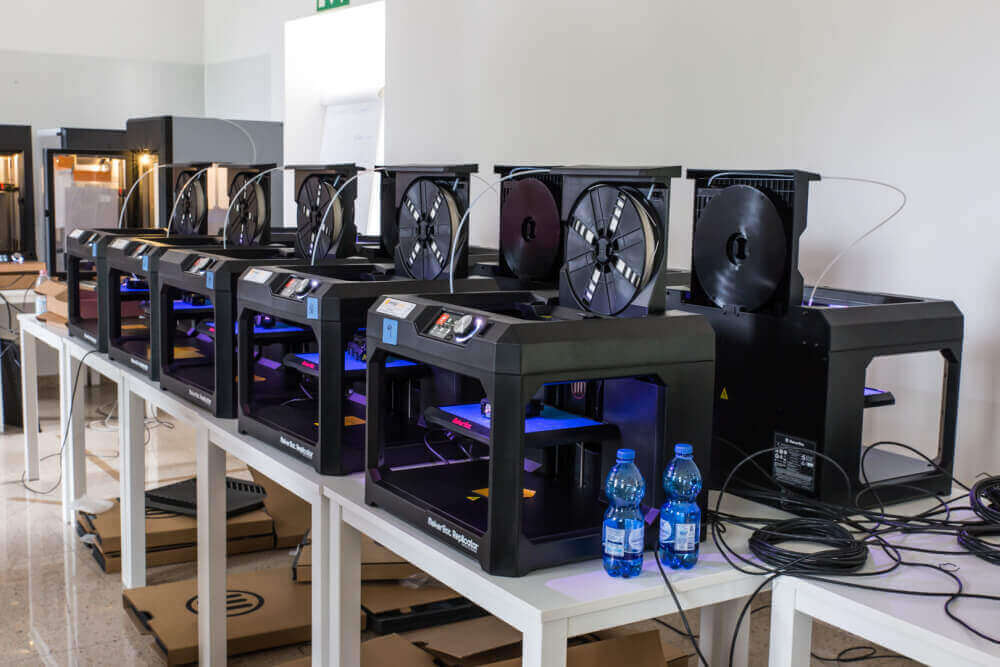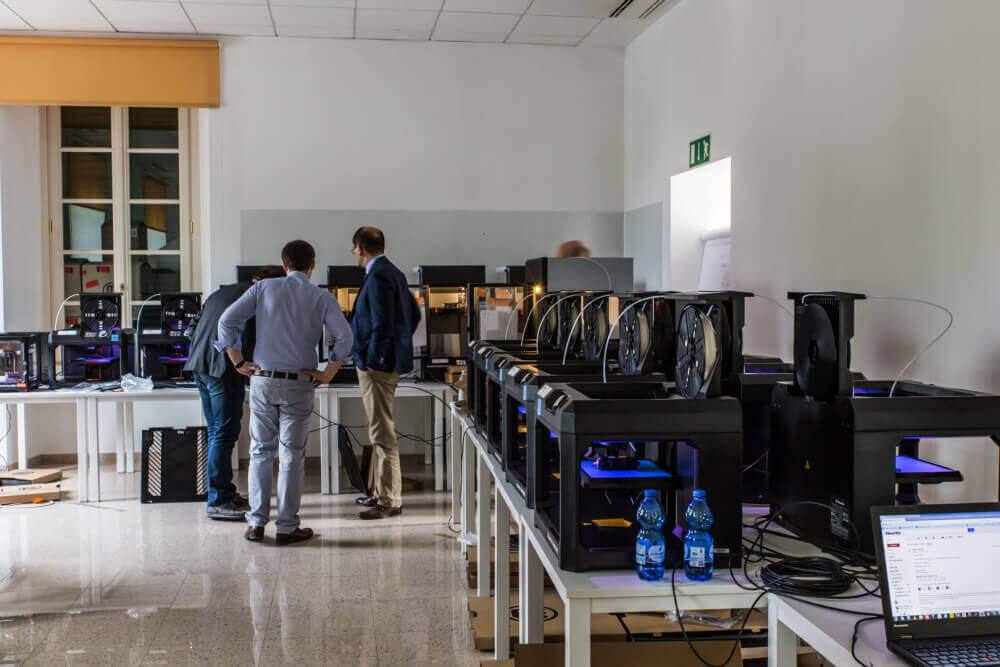The first MakerBot Innovation Center has opened in Europe, at the LIUC – Catteneo University of Castallanza in Italy. ALL3DP takes a tour.
MakerBot Industries is on a mission to expand their network of “MakerBot Innovation Centers” outside of the United States. The very first to open in Europe is the LIUC – Cattano University of Castellanza in the Northern Italian Region of Lombardy.
We met with Luca Mari, Professor in the Faculty of Engineering and director of the Smartup, a digital fabrication laboratory located within LIUC, to talk about the design and creation of this exciting new venture.
Viva CES Las Vegas

The idea for the MakerBot Innovation Center in Italy was first conceived at the CES show in Las Vegas last January, where meetings took place between Professor Mari’s team and Alexander Hafner, formerly the General Manager at MakerBot Europe.
MakerBot, which is pushing for expansion into many parts of Europe, is especially keen to create a network of partnerships with leading technical universities like the LIUC. In turn, the LIUC were eager to collaborate with MakerBot for their expertise in 3D printing and engineering management.
After several months of planning, the grand opening for the new Center took place on 10th June, complete with a ribbon-cutting ceremony with the current General Manager of MakerBot Europe, Andreas Langfeld.
The Future of Manufacturing?

The centrepiece of the laboratory are the 20 networked MakerBot Replicator printers, each controlled by a centralized management software.
This enables the creation of an interactive network between the printers, so that print queues can be effectively managed for mass production of 3D printed objects. They also have a 3D scanner, as well as several Arduino components and sensors that the students are already using to produce new physical products for their exam projects.
“The main aim of the project is not so much to study 3D printing from a purely technical side,” explains Professor Mari, “As much as teaching and learning about models for future manufacturing, changing the learning experience from passive to active and giving the opportunity to experiment first hand with the topics studied in class.”
The workshops are not just open for all students of the University, but also to startup entrepreneurs and artisans. This approach is based off learnings from another Italian technology initiative launched in 2002, the Lab ID project, where the goal was to study the development of RFID technologies.
In addition to the collaboration with MakerBot, the launch of the Innovation Center was made possible through the support of the Confindustria Varese, an association of local enterprises that is also a partner and founder of the University. Altogether, the LIUC has access to a network of industry partners that includes more than 5000 companies.
Startup Style at the MakerBot Innovation Center

The MakerBot Innovation Center project has 5 full-time staff, consisting of professors, researchers, and graduate students. They currently have over 30 members, including external collaborators and students who have already used the laboratory as a space for work, study and meetings.
“Starting from the next academic year, our engineering students will get a chance to test their skills in the design and prototyping of new products, in a startup-like context,” says Professor Mari.
“The MakerBot Innovation Center will allow us to continue to develop the activities currently proposed by SmartUp, giving our students a real opportunity to touch the digital fabrication technologies that will shape the future of business.”
To stay up-to-date on future workshops and activities, follow the LIUC on Twitter, the LIUC website and the Smart Up Lab homepage.
Additional reporting: Ing. Angelo D’Angelo
Image credits: Alberto Caielli
License: The text of "MakerBot Innovation Center Expands Into Europe" by All3DP is licensed under a Creative Commons Attribution 4.0 International License.